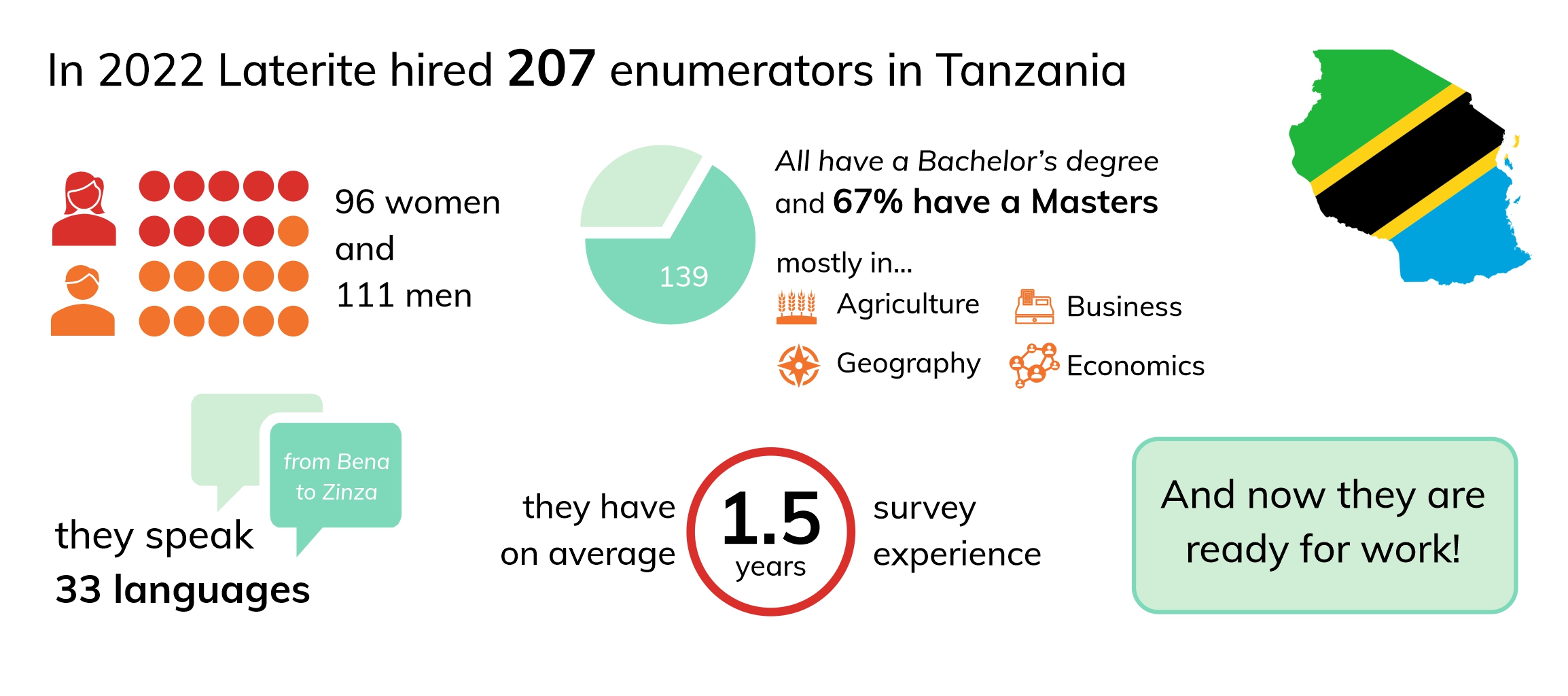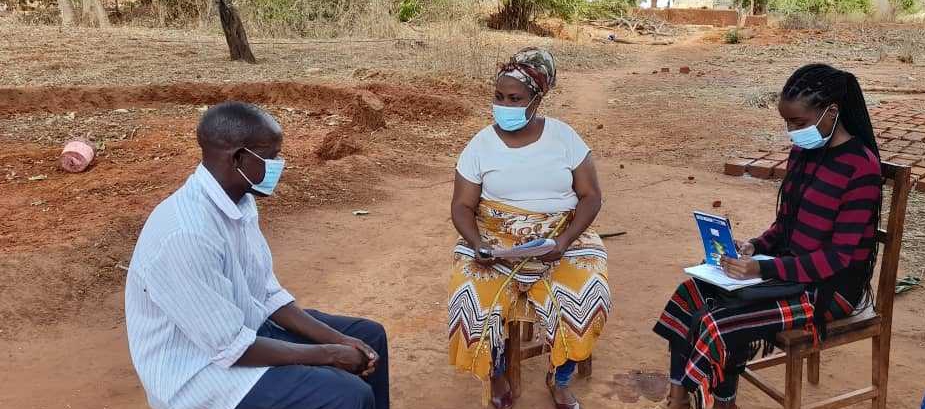It’s often said that “you’re only as good as the people you hire”. Laterite’s experience in East Africa certainly demonstrates this point. Our data managers and field supervisors may run one of the best data collection operations in the region, but it all starts with our enumerators because collecting quality data is impossible without highly talented and well-trained enumerators. This is why Laterite invests in rigorous processes to hire and train field teams.
With members of our data team from Rwanda and Uganda, I had the opportunity to apply these processes in Tanzania, where we are building an enumerator network. Here is what we did.
Hiring an enumerator team
Laterite Tanzania first advertised for open enumerator positions in November 2021. Our goal was to recruit about 200 enumerators to work on our first in-country data collection projects. We were looking for gender and geographic balance. On top of this, we needed applicants with at least 3 months of data collection experience. We also looked for a team with a mix of both qualitative and quantitative experience.
We were fortunate to attract over 1,200 applications from candidates interested in the role. This was a huge record in our books – we had never received so much interest when we started offices in other countries. This goes to show that the quality of work done at Laterite is not defined by East African borders. Here are the steps we used to select the best talent:
- An online logic, attitudes and written test. Candidates complete an online test with random combinations of questions that test their logical reasoning abilities and their attitudes in certain scenarios. We also ask candidates open-ended questions to assess their ability to write in a structured and logical way. This also allows us to assess their level of English. Candidates need to score above 80% to advance to the next round.
- A screening of CVs and experience. The next step is a CV screen to confirm if applicants meet our minimum requirements: data collection experience of at least 3 months, and a bachelor’s degree. At this stage, five data team members from Rwanda and Uganda assessed over 700 CVs to screen for our perfect candidates. This was no easy feat! This process was completed in a record 1 week.
- In-person or phone interview. Candidates that pass the CV screen are invited to an interview which has two parts. First, we discuss the candidate’s responses to open-ended questions. Next, we hold a mock-interview, during which the candidate interviews one of our staff using quantitative or qualitative research instruments. Our objective is to assess the candidate’s integrity and communication capabilities. At this final stage, the same data team members interviewed about 300 candidates over the phone within 2 weeks.
It takes a village
The key lesson for me in this recruitment process was that it truly takes a village to find the best of the best. We pooled our experienced resources from other Laterite offices to build a strong enumerator team in Tanzania. In the end, we selected 207 applicants with diverse academic backgrounds to be added to our pool of enumerators in Tanzania. They were all onboarded via an online session on Laterite’s way of doing work so they are ready to go when we start our data collection projects.

This blog post was written by Ravina Pattni, Research Associate at Laterite Tanzania. Read more about our new office in Tanzania and the services we can offer across East Africa.
